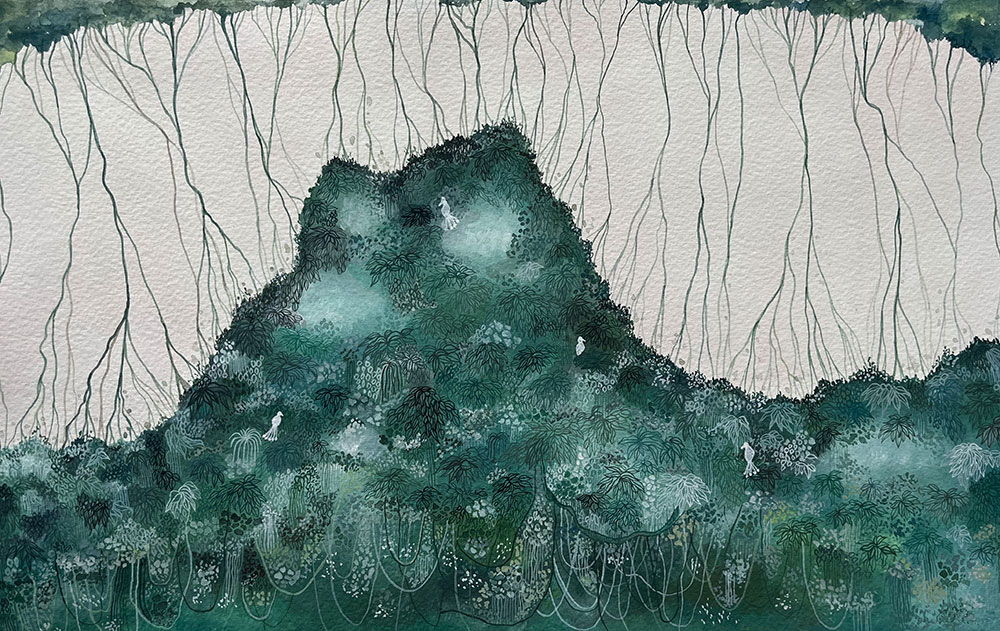Landscape Atelier 1a
The first-year cohort of this year's MLA program brought a wealth of global perspectives, professional expertise, and diverse landscape cultures, enriching our collaboration in the semester 1 design studio.
The studio encompassed two distinct projects, each presenting contrasting sites and objectives. In project 1, students collaborated to conceive opportunities for human-nature interaction. Delving into the subjective experience of place, students creatively documented their ideas and conducted site surveys, exploring themes such as natural processes, topography, materials, boundaries, patterns of movement and activities. Working in groups, they crafted ephemeral installations before transitioning to individual designs, fostering social engagement with nature.
Project 2 expanded upon insights gained from project 1, aiming to design a park that enhances collective landscape experiences. Through thorough research, students identified and centred their design around a local community group, tailoring project aims and objectives accordingly.
Throughout both projects, the MLA Studio+, led by Sandeep Menon provided invaluable support in developing innovative communication methods for conveying research, design evolution, and final outputs. Leveraging a variety of techniques and approaches, students showcased their creativity and ingenuity, as exemplified in the accompanying student work.


